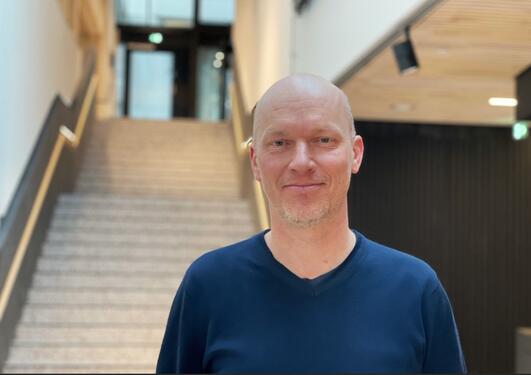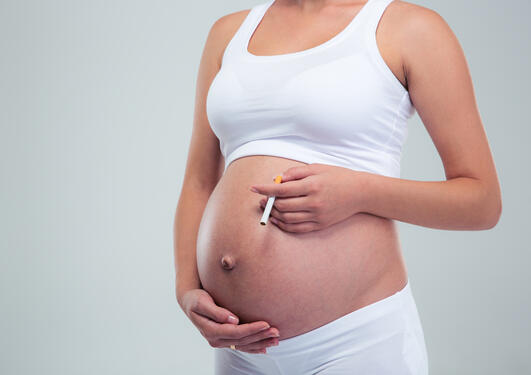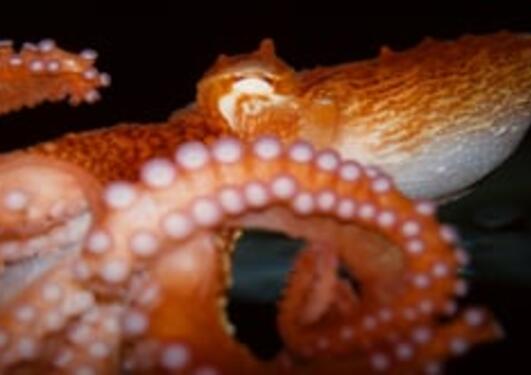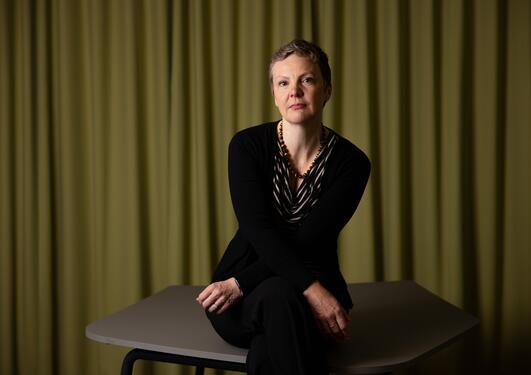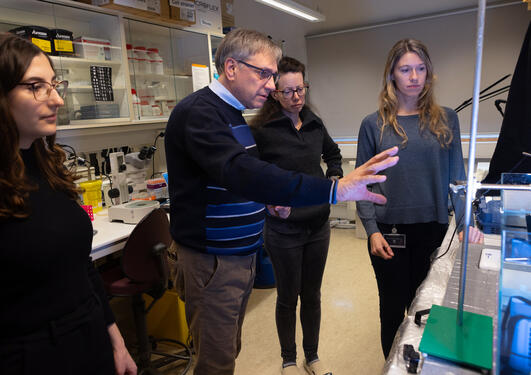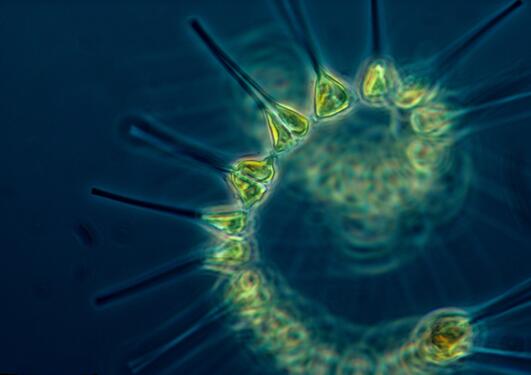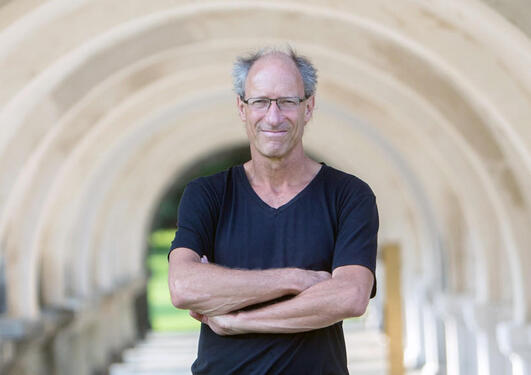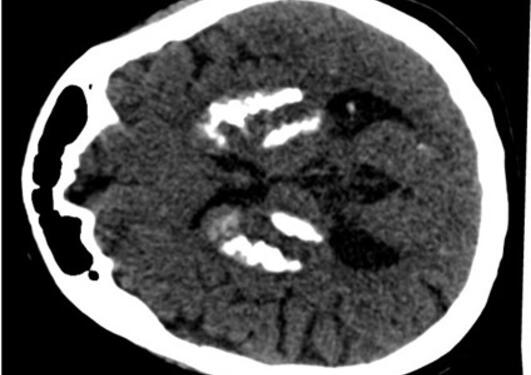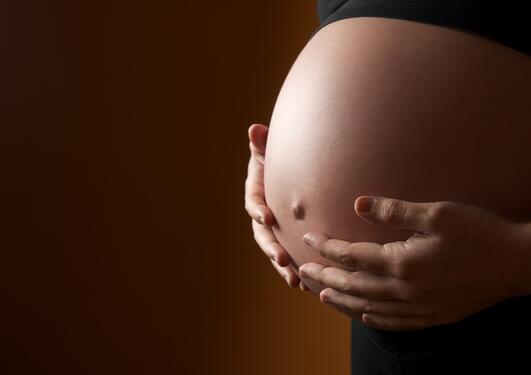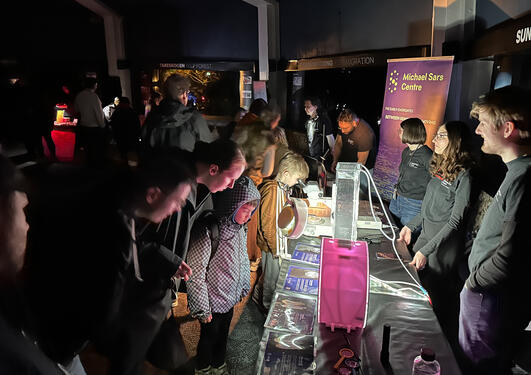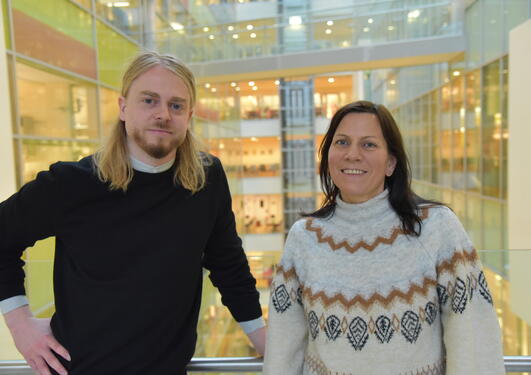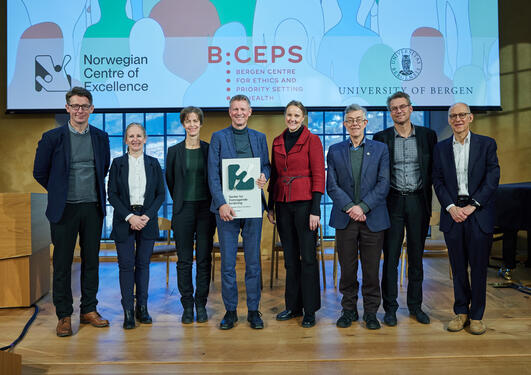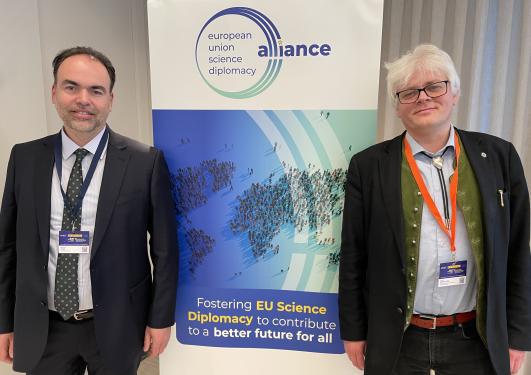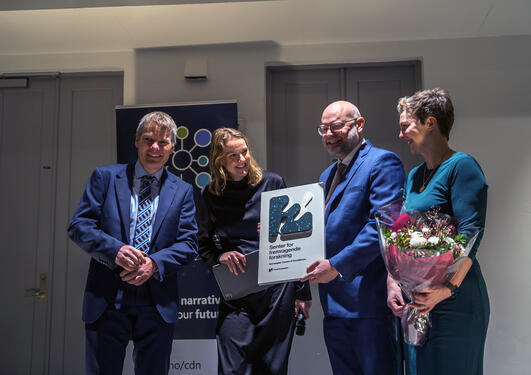News archive for Research
Researchers at UiB are doing comprehensive research on the unequal distributions of air pollution. Young children, people who are already sick, and elderly people are the most affected.
Offering a unique perspective on the latest advances in Developmental Biology, the Nordic Developmental Biology Societies & Michael Sars Symposium Joint Meeting attracted a diverse audience and strengthened connections between Nordic and international institutions.
More than 10,000 interviews and a new method show that survivors of conflict-related sexual violence are actually more engaged in their communities afterwards.
A new study from the University of Bergen and the University of Exeter shows that pregnant women who quit smoking may prevent an abnormal mismatch between the weight of the placenta and the growth of the fetus.
On 9 April 2024 the University of Bergen organised an official satellite event on marine genetic resources, global benefit sharing and ocean science diplomacy at the Ocean Decade Conference in Barcelona. Watch a recording of the satellite event.
Professor Jill Walker Rettberg receives an ERC Advanced Grant to see how narrative archetypes influence the future of artificial intelligence.
Professor Giovanni Zambon and researcher Dr. Valentina Zaffaroni Caorsi from the University of Milan-Bicocca recently visited the Centre to conduct preliminary experiments as part of the pan-European project DeuteroNoise.
On 21 February 2024 the University of Bergen and partners organized an event on ocean governance at Norway House in Brussels. The discussions at the event and an outcome discussion has now resulted in the first Ocean Futures 2030 Policy Brief.
Capitalism is not just an economy, it is a type of society, according to professor in social anthropology, Don Kalb. For the past few years, he and his team have tried, through field work and research, to understand what is happening to people and communities in areas that have recently become capitalist.
Brain calcification can cause movement disorders and cognitive impairment. New research by the Arnesen Lab at UiB provides increased insight into how these calcifications occur.
Researchers from University of Bergen have investigated the relation between 40-year-old women’s pregnancy history and later risk of dying of cardiovascular diseases.
Researchers from the Michael Sars Centre engaged visitors with interactive exhibits and offered insights into marine life fostering scientific curiosity and education among guests of all ages.
New research indicates that muscle strength may play a more significant role in adult men's sexual lives than previously known. The researchers behind the study aim to break the taboos concering sexual dysfunction among men.
Use of cultural specific terms in times of crises can cause greater health inequalities (22.01.2024)
During the coronavirus pandemic, Norwegian health authorities used the term "dugnad" to encourage collective infection control measures. New research indicates that the use of such culturally specific terms can be problematic for immigrant groups.
Rustam Galimullin is one of several experts in artificial intelligence at UiB. Learn more about him and his research here.
On Monday 8 January, the official opening of BCEPS Centre of Excellence took place in the university aula. The centre will develop new methods and ethical frameworks to help decision-makers in ensuring a fairer distribution of health services.
The Norway-EU Science Diplomacy Network had a strong presence at the European Science Diplomacy Conference, which took place in Madrid in December 2023.
CDN opening on December 11th, with Rector, Research Council and Drummer Boys.
Pages
- December 2024 (1)
- November 2024 (3)
- October 2024 (3)
- September 2024 (5)
- August 2024 (1)
- July 2024 (2)
- June 2024 (5)
- May 2024 (1)
- April 2024 (3)
- March 2024 (5)
- February 2024 (2)
- January 2024 (3)
- December 2023 (6)
- November 2023 (6)
- October 2023 (6)
- September 2023 (5)
- August 2023 (3)
- June 2023 (4)
- May 2023 (4)
- April 2023 (4)
- March 2023 (6)
- February 2023 (2)
- January 2023 (3)
- December 2022 (1)
- November 2022 (6)
- October 2022 (4)
- September 2022 (4)
- August 2022 (1)
- June 2022 (2)
- May 2022 (1)
- April 2022 (3)
- March 2022 (5)
- February 2022 (2)
- January 2022 (1)
- October 2021 (1)
- September 2021 (1)
- August 2021 (1)
- June 2021 (1)
- March 2021 (5)
- February 2021 (4)
- January 2021 (2)
- December 2020 (4)
- November 2020 (4)
- October 2020 (2)
- July 2020 (2)
- June 2020 (6)
- May 2020 (2)
- April 2020 (2)
- March 2020 (1)
- February 2020 (2)
- January 2020 (2)
- November 2019 (1)
- October 2019 (4)
- September 2019 (2)
- August 2019 (2)
- July 2019 (5)
- June 2019 (2)
- May 2019 (1)
- April 2019 (2)
- March 2019 (2)
- February 2019 (3)
- January 2019 (2)
- December 2018 (1)
- November 2018 (3)
- October 2018 (2)
- August 2018 (1)
- July 2018 (3)
- June 2018 (3)
- May 2018 (2)
- April 2018 (3)
- March 2018 (1)
- February 2018 (3)
- September 2017 (1)
- August 2017 (2)
- June 2017 (2)
- May 2017 (1)
- April 2017 (5)
- March 2017 (4)
- January 2017 (1)
- December 2016 (1)
- November 2016 (1)
- October 2016 (2)
- August 2016 (1)
- May 2016 (1)
- March 2016 (1)
- February 2016 (1)
- January 2016 (2)
- December 2015 (2)
- November 2015 (1)
- August 2015 (1)
- June 2015 (1)
- December 2013 (1)


